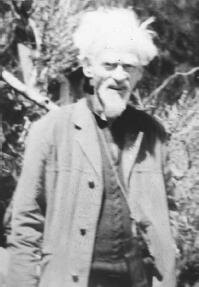People of Wicca
Gerald brosseau gardner (1884–1964)
Gerald Gardner is regarded as the founding father of all modern expressions of witchcraft/Wicca. Born in Lancashire, England, on June 13, 1884, Gardner spent a great deal of his adult life as a British civil servant and as a plantation manager in Southeast Asia. Although Gardner would later claim to have had an interest in the occult of great duration, he did not really begin to explore Spiritualism and the arcane until he had returned to England after his retirement shortly before World War II. There, in the autumn of 1939, he discovered witchcraft and, Dorothy Clutterbuck, a hereditary witch, high priestess of a New Forest coven, initiated him into a secret group of Wiccans. Throughout his writings, Gardner would always refer to the magical religion as Wica, rather than Wicca, as the word is spelled in common usage today.
In his book The Meaning of Witchcraft (1959), Gardner wrote that when he found Wicca, he knew that he had discovered something interesting, but he was nearly through the initiation when it struck him that the Old Religion did truly exist and that he had become a part of the great circle that had existed since time immemorial. To be a Gardnerian witch would thenceforth be to become a witch who had undergone an initiation that could hearken back to Gerald Gardner and through him to an unbroken lineage that had been hidden and kept secret by sacred oaths and the solemn practice of holy rituals.
At first, when Gardner published High Magick's Aid (1949), a fictional account of witches under the pseudonym of Scire, traditional witches became nervous and upset that he was beginning to reveal too much to the general public. Then, when the witchcraft laws were repealed in Great Britain in 1951 and Gardner wrote Witchcraft Today (1954), a

Gardner became the major spokesperson for contemporary witchcraft and the pagan community, and in 1960 he was invited as such to a reception at Buckingham Palace. He died on February 13, 1964, on the S.S. Scottish Prince while returning from a trip abroad.

Comment about this article, ask questions, or add new information about this topic: